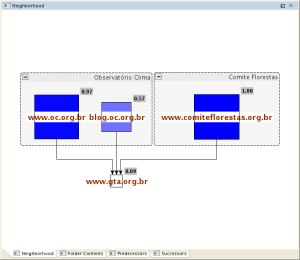
“It’s reckless to say that there’ll be rationing, but it’s also reckless to say there won’t be,” –Ricardo Correa, Ativa Corretora
Source: Carta Capital.
President Dilma Rousseff has signed the law that extends the concessions of electricity generators and reduced taxes on the sector in order to offer electricity at a reduced cost to the consumer. Under Law 12,783, date January 11, 2013 and published in the Official Diary on January 14, 2013, generation concessions can be renewed one time only, for a period of 30 years, in order to ensure continuity, efficiency and lower prices.
In order to get their concessions renewed, the concession holders must meet the requirements of the federal energy regulator, ANEEL, with respect to rates and quality of service. ANEEL will also oversee the passing on to the end user of investments needed to maintain the quality of service and continuity of operation of the nation’s hydroelectric plants.
Naturally, capital market operators and the government have sparred over the risks and costs of the new regulatory regime.
As Luis Nassif accuses the mainstream media of exaggerating the risk of rationing due to an unusually dry tropical autumn, stock market analysts interviewed by two reporters from O Globo lament the effects of the new policy on the profitability and dividend payout of the affected companies — colorfully described as a «dividend blackout».
The Panic Newsroom
Andre Barrocal of CartaCapital writes:
What President Rousseff could not have imagined is that 2013 would begin with electricity transformed into a major headache. This happened thanks to the combination of real factors — hydroelectric construction projects behind schedule and very little water in the reservoirs after a dry spell — together with an erroneous reading of the scenario by certain sectors of the mainstream media, who reported that a return to the energy rationing of 2001 was imminent.
Confident that talk of a return to rationing was «ridiculous», Dilma put together a political initiative while on vacation in Bahia — a vacation she decided to interrupt and return to Brasília to supervise directly. Energy regulators and other officials in the area were instructed to offer reassurances to the public and calm the concerns of citizens and the business community. The keystone of this initiative was a press conference held on January 9 with Mining & Energy minister Edison Lobão “There is no risk of an imminent shortfall and I expect there never will be,” he said.
Absolute confidence, however, depend on the summer rains, which were less than generous in late 2012, to the point that reservoirs … were at their lowest level since 2001. ONS, the National Electrical System Operator, which manages the flow of energy throughout Brazil from areas of oversupply to areas of shortfall, was obliged to modify its planning for this eventuality.
Nassif reprises an embarassing moment for Globo and the Folha de S. Paulo, both of which reported that an «emergency» meeting of the technical oversight committee of the E&M ministry had been called. The meeting was routine and went off as scheduled. Globo, Veja, and the FSP were obliged to issue a correction.
Nassif explains:
The electrical energy market is divided into two segments. There are long-term contracts, negotiated between major consumers — including energy distributors — and their suppliers. The other is the so-called spot market, used for short-term transactions.
Incorrect information such as was published by the FSP can cause volatility in the prices fixed by the spot market. It can also cause companies to suspend investments and activate contingency plans.
In this case, the market was not affected because big business and major investors have their own sources of information, and the Internet was effective in defeating the rumor and correctly reporting the MME’s response to reports on the supposedly «extraordinary» nature of the meeting.
As Bloomberg reported recently, this state of affairs is not exactly a zero-sum game.
A dry spell that’s emptying Brazilian hydropower dams is poised to turn Cia. Energetica de Sao Paulo, the second-worst generator stock last year, into one of the industry’s biggest winners.
Cesp, as the utility is known, and other producers that can sell extra electricity in the spot market may be able to profit after prices surged to a record, said JPMorgan Chase & Co. and Banco BTG Pactual SA. Net buyers of energy in the spot market — from billionaire Eike Batista’s MPX Energia SA (MPXE3) to steelmaker Usinas Siderurgicas de Minas Gerais SA — stand to lose the most, analysts said.
Nassif concludes:
Even so, the inaccurate report was used to support the argument that problems with energy supply were the result of the plan to cut energy bills — a plan that has not even gone into effect yet.
The Corretores

Writing in O Globo today — «A Dividend Blackout», how clever — João Sorima Neto & Eliaria Andrade round up reactions from major brokerages to the impending implementation of price controls partially subsidized by tax breaks.
Analysts predict shortfall in energy sector dividends in the face of government actions and the risks of rationing.
Oliveira, of the Magliano brokerage house: The brokerage has sold off electricity companies in its portfolio.
After taking a beating in the stock market since September, when the government announced measures to reduce the cost of energy to the consumer, share prices continue to suffer well into the New Year. In the first seven Bovespa sessions of 2013, shares in energy sector companies lost R$ 2.5 billion in market value. In 4Q2012, the same companies lost $34.8 billion in market capitalization.
In this case, the specter of energy rationing was behind the stampede. Paradoxical is the situation of a sector that has always proven attractive to investors because of the dividends it pays. In the current scenario, however, dividends will likely suffer, say experts in the field. The energy investor, these experts say, will have to carefully select companies whose revenues are less affected by the policy.
— Before 2011, the electric companies paid dividends of 10% to 12%, on average. That number now stands at 6% to 7%. And some companies may forgo paying dividends altogether — according to William Alves, an analyst at XP Investimentos.
Dividends are the percentage of company profits distributed to shareholders. They represent extra income not dependent on the market price of shares.
The electric companies have always paid healthy dividends because they generated large amounts of cash and required few investments.
Required few investments of themselves, perhaps. Many have taken a beating from a newly activist crew of regulators in recent years over quality of service.
Even now, as I type this paragraph, we are under fire from torrential rains likely to have a dual effect: It will help swell reservoirs and it might well produce those marvelous serial explosion of electrical transformers to which we have become accustomed over the years.
Energy-sector companies were also considered a low-risk, defensive investment, with stable share prices even during moments of market volatility. This has changed, as we have seen in recent months. [The sector’s] stock exchange losses are approaching 50%.
The tumble occurred [in September.] when government action threatened the profitability of these companies, explains Júlio Oliveira, a partner at the Magliano Corretora brokerage house.
In order to reduce electrical bills by 20% starting in February, the federal government rescheduled the renovation of concessions expiring in 2017 or earlier, and ordered generators and transmitters to accept 70% of their current income. With that, companies that adhere to the new plan will see profits decline. Energy rationing could also reduce sales and impact profits, although the government denies there is any risk of rationing.
— Bringing thermoelectric plants online [as a back-up measure] also concerns the shareholders of the distribution companies. The cost of production of these plants is much higher, and the sector will have higher costs until rates are readjusted, according to Pedro Galdi, a market strategist at SLW.
The entire sector has suffered in the stock market, but even so, market analysts are not recommending a massive sell-off. They are closely studying the impact of the regulatory changes on each and every company in the sector and have reached certain conclusions. There is consensus that Eletrobras shares are not a good buy option at the moment. Some expect that the state-owned company will pay no dividends at all. The recommendation is for investors in Eletrobras to trade their shares in for other stocks.
— Eletrobras was the first company to adhere to the government reform. This new reality reduces cash generation, which affects the payment of dividends, says William Alves of XP.
Julio Oliveira, of the Magliano brokerage, believe that if Eletrobras does pay dividends, these will be the minimum demanded by law: 25% of net profits.
CTEEP — the São Paulo energy transmission company — has already paid out 100% of profits in the form of dividends, but it is highly unlikely to do so again, says Beatriz Nantes, an energy specialist at Empiricus Reserach/Investmania.
According to Nantes, CTEEP’s acceptance of the government plan will affect its earnings. Nantes also does not believe that Eletropaulo will offer satisfying dividends. CTEEP, though not so heavily affected by the government plan, recently concluded its third cycle of rate readjustments, in which the company’s prices are reevaluated. The price was cut by 9%, on average.
— Eletropaulo is no longer a reliable payer of dividends, — Nantes says.
Among those energy-sector stock that may still pay attractive dividends are Tractebel, TAESA and AES Tietê, the analyst says. Nantes believes that these companies were not heavily affected by the government-mandated changes.
The XP brokerage house is recommending Taesa and Tractebel.
Tractebel carries very little debt, which enables it to generate more cash. The concessions held by Taesa, meanwhile, expire in 2030, which reduces the company’s regulatory risk exposure, says Alves.
Magliano Corretora has removed all energy-sector stocks from its portfolio of recommended investments.
— You should not sit on these stocks for four or five years, especially in view of these changes in the industry. We have a portfolio of dividend-paying shares that, while not as generous as electricity dividends once were, still present a favorable opportunity cost.
Among these are Ambev, Souza Cruz, Sabesp and Vale. Souza Cruz, for example, will pay 100% of its profits as dividends. This is one option to consider while the profitability of the electric sector remains unclear, Oliveira says.
Beer, cigarettes, sanitation and nickels. Who can live without them?
Filed under: Agribusiness, Banking and Brokerage, Brazil, Center-West, Electricity, Energy, Funds, Investment Banking, Journalism, Market Making, Mining & Minerals, Nationalization, Politics, Public Works, Water & Power | Leave a comment »






















